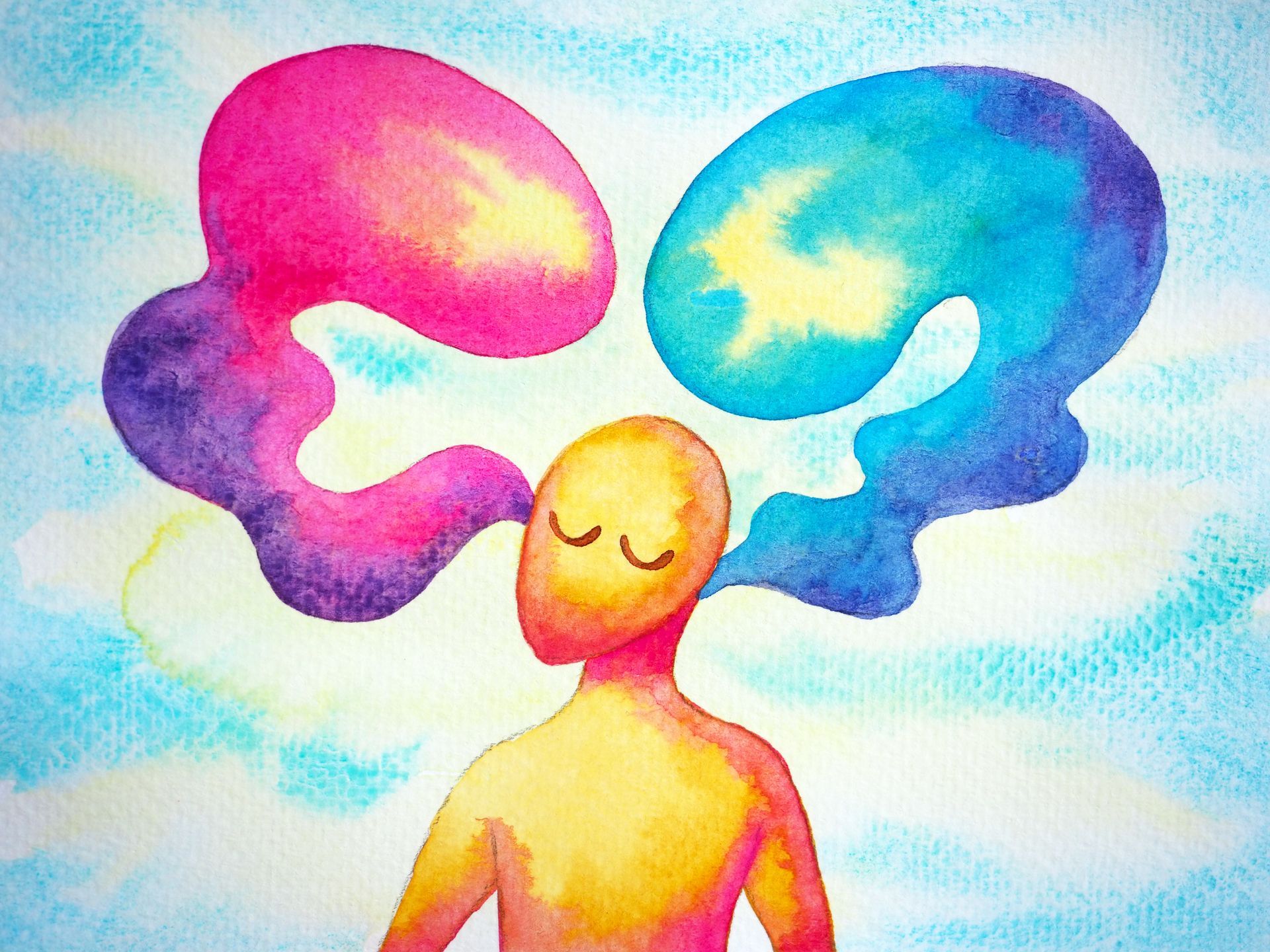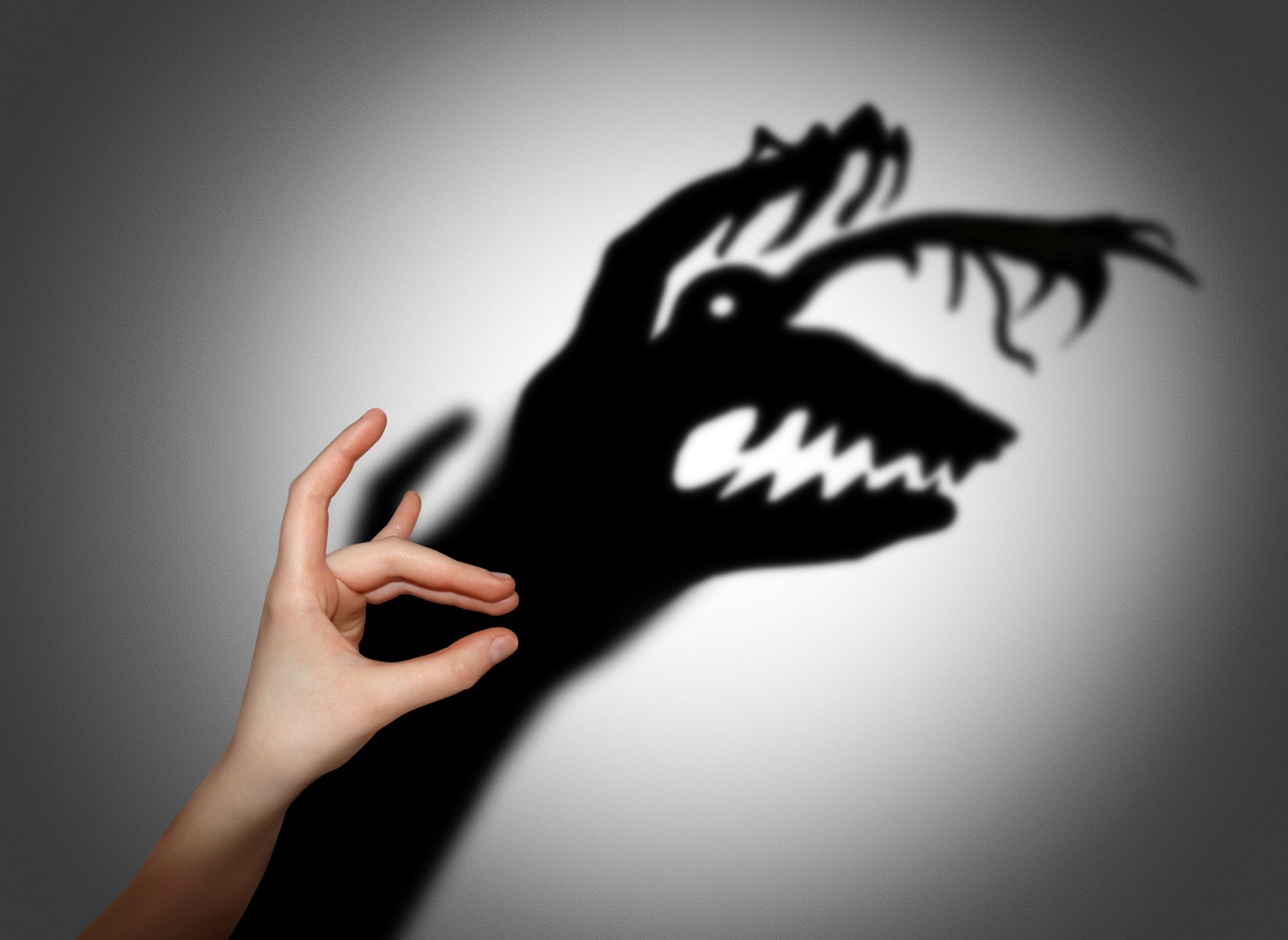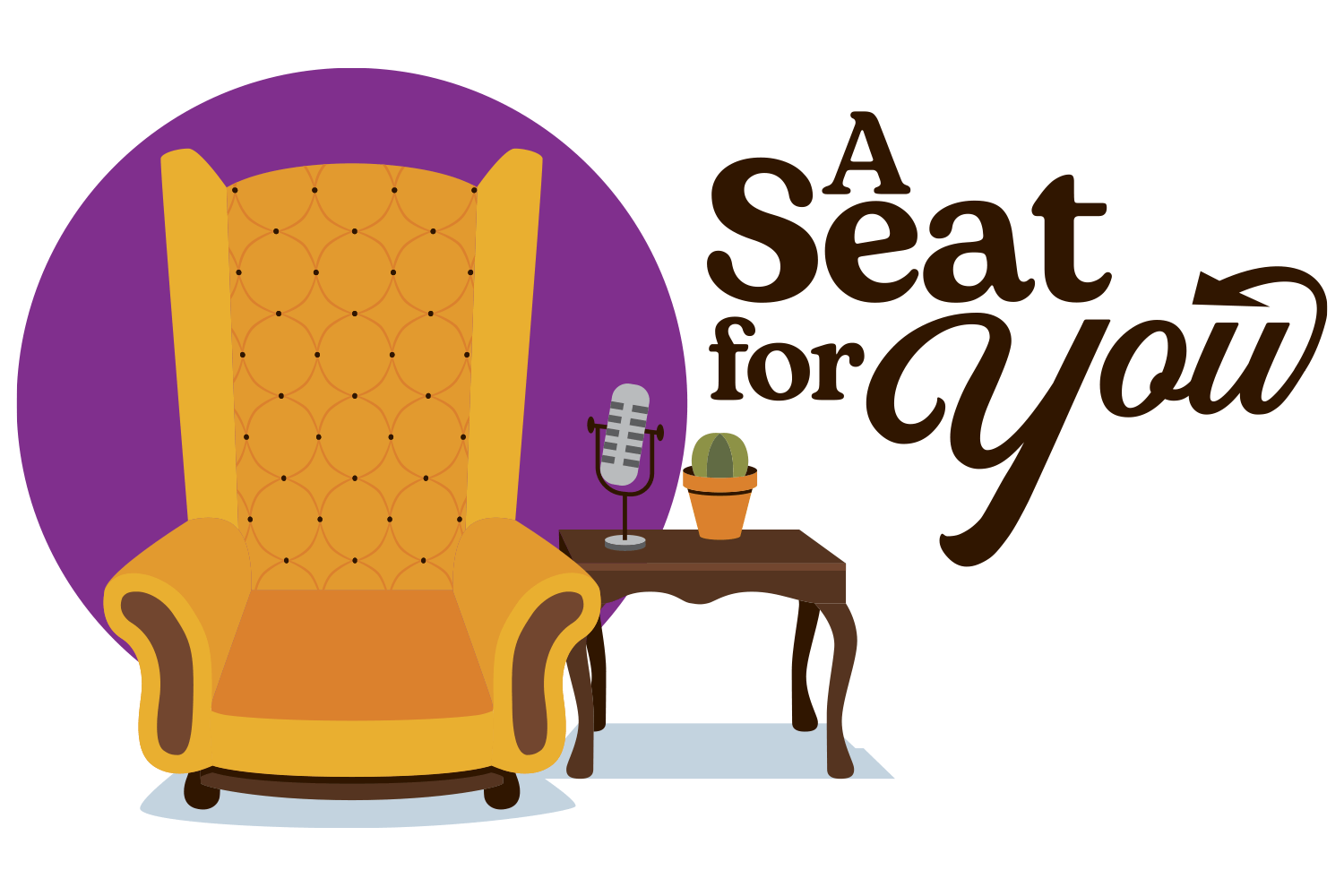Episode 7- What is Manufactured Outrage and have you been a victim?
Episode 7-
Leslie: [00:00:00] All right. On today's episode, we are talking about manufactured outrage. Last episode, we talked a little bit about rational and irrational fears. So we thought that we would dip our toe into a few, crisis points 2023, 2022. Um, That might, might actually be leading some of these fears, right? Irrational fears, probably.
So, with the latest breaking news, April's gonna go ahead and give you, the most recent thing you probably need to be concerned with.
April: Probably. Maybe. Uh, it's mostly on TikTok, and we've struggled to find it other places. Which should give you some kind of insight, [00:01:00] but apparently, on October the 4th, 2023, at approximately 2. 20pm, we are going to, well, okay, whoever got the COVID shot, what did they call it? The jab.
Leslie: Whoever got the jab.
April: Um, there is something that was injected in us, supposedly, that, Will be activated via a 5G signal through three pulses to their towers. And then from that we will be infected with the Marburg virus.
And components of that will then turn us into zombies. Which really sucks. Because, you know, I don't like the sight of blood very much.
Leslie: If you're a zombie, I think you don't care. [00:02:00]
April: And as one TikTok user put it, we're all going to starve because if zombies are left to feed off of the brains of who's living, then we are going to just be in famine.
Leslie: Yeah, because who wants to eat that?
April: Well, there's not much there. Right. It's like, you know, when you get the boiled peanuts and it's like you open up the shell and it's just like a little tiny one and you're so disappointed.
Leslie: That's, that is very disappointing.
April: It is. And it's going to be like that and not salty.
Leslie: It might be salty. I've never been a connoisseur of brains, but apparently on October 4th, we're going to be.
We are going to automatically.
So we only have like less than a month folks.
April: I'm getting kind of a Y2K vibe. here. I don't know if you guys remember the Y2K, but I was working at the credit union during that, and there were people calling to withdraw their money just, you know, like days and hours prior.
I remember [00:03:00] that my, it was a big deal, and I remember that my dad went and took the battery out of my car. Because we were making fun of it, but he went and took the battery out of my car or disconnected it or something and so when I, because part of the conspiracy was that no cars would work, um, your bank accounts would be like sapped, like just the world was going to end.
And so I went out to my car, like the next day, it was on Y2K and it didn't start, and I'm like, oh my gosh, but my dad was laughing because he had disconnected my battery.
Leslie: That would be manufactured outrage. That is manufactured outrage. When you disconnect the battery and then say, guess what, your car is not going to work.
Right. I mean, you're, you believe that, you believe, on, for my Y2K experience, I worked at Sam's Club, and on, on New Year's Eve, on 12/ 31 /1999, when we closed down the clubs, our direction Was to take pallets of soda, and [00:04:00] salt rock, and dog food, and the heaviest things that we had in the club, and barricade every fire door.
Just in case, and the front doors, just in case there was mass hysteria, and people were rushing into all of the retail environments. And going crazy. So, apparently, pallets of soda would stop you from getting into the Sam's Club.
April: What if you guys had a fire and you had to get out?
Leslie: Well, there was nobody in the building.
April: Oh. I thought y'all were like barricading yourselves in.
Leslie: No, no, no, no. It was before we left for the night and closed it down. I see. There was nobody there. So it was just like, and put forklifts in front of things. It was just the oddest thing.
April: And so going back to like the manufactured outrage. So the only people that are really, you know, scared are the people who know about this.
And so it seems to be via tick tock because we've looked at, you know, [00:05:00] reliable, trusted sources online. There's nothing. And so if you are in the algorithm to see this feed. Then yes, it's going to seem like everyone in the world is freaking out about this. But really, it's a handful of people, and that's the point of manufactured outrage.
Leslie: Yeah, I mean, because I wonder, like, what type of person believes this?
April: Well, I don't know.
Leslie: I mean, who? It's hard for me because there's a couple of conspiracy theory topics out there that do peak my ears because it's like, wait, maybe that really isn't right, right?
April: Um, you mean like the Pentagon?
Leslie: Yeah, that's a whole nother episode. We cannot get into that.
April: We're definitely going to dive into that at some point.
Yeah. About a plane hitting the Pentagon.
Leslie: That's a whole nother thing.
April: But we're gonna, we'll move on from that. Yeah.
Leslie: But that's the thing. It's like, if [00:06:00] you, if you find yourself, I mean, I, I'll just speak from my own experience.
Like, sometimes I think, am I that person? Like, am I, am I the crazy one that would believe , in something like that? But for me, I am, I like to see proof. I like to see visual evidence. Or if there's visual evidence, it's like, you know, a picture's worth a thousand words. You know, I need to see, I need to see something like that.
But what type of person concocts like all these like QAnon conspiracies and like, how the Clintons are in the basement of the pizza place and eating babies and stuff. Like, who makes these things up and then who actually believes them? If you are someone listening and you believe these, I would really like to talk to you.
Like, civil conversation, legit. Come in. And let's just talk, because I would like to understand how you're...
April: What sold you.
Leslie: Yeah, what sold you on that?
April: Well, what's another example of like, um... [00:07:00] manufactured outrage that you can think of off the top of your head?
Leslie: Well, for me, this one's like, kind of, it's probably going to be very touchy for some people, um, because there's so much talk about it in the media, but I do feel like, the topic of our transgendered citizens of this country,, is a part of manufactured outrage.
I think that It's really easy to pick on the little guy and when you can get a majority of people worked up to hate something that is so minimal, it's a really great distraction tool from what is really going on out there. So I did a little research because I wanted to make sure I was, you know, putting real information out there. So, out at UCLA and their law [00:08:00] college or whatever, there's the Williams Institute, and they did a study, um, this past year that was on trans adults in the United States. And this study estimates that you're talking about a population of 0. 5 percent of all U. S. adults, which equals about 1. 3 million people. Um, it's 1. 4 million if you add in the 300, 000 approximate youth between the ages of 13 and 17 who identify as transgender. So you're talking about a very microcosm slice of our, or a micro slice of our whole population. And the thing that really, disturbs me, and disturbs many people, Is that, according to the,, HRC, uh, in 2023.
So just in this year, so from January up until. Right now, [00:09:00] September, 566 bills were introduced into 49 states against the trans community. 566 bills. 83 of those bills have passed, 358 are active, and 125 failed. So my question, when it results to manufactured outrage, is why is there such a misuse of time and resources being spent on things that impact so few people when real issues that are out there are not being addressed.
April: Right. Because it's, it's for distraction. It's the art of distraction.
Leslie: I mean, we're, we're investing all this energy and emotion and passion around one of the smallest marginalized groups. [00:10:00] Because it's easy to attack what's considered weak. It's easy to dogpile on top of a small group. It's easy to, to make something that seems different than what you're used to.
It's easy to inject fear into that. Because different means fearful. Different means, oh my god, they're going to come for me. Trust me. I know many gay people. And I know a handful of trans people, and they don't want your kids. They don't even want to be in the same room with your children. Right? So, they're not coming for you.
They're not coming for you through a Disney movie. They're not coming for you through a Bud Light can. Like, they're not coming for you. They got their own crap that they're dealing with. And all you're doing is adding to the problem. And it's all this, again, manufactured outrage that just whips everybody up into a frenzy [00:11:00] and unleashes the attack on people who don't have the power to defend themselves.
April: Right. And 98 percent of the people creating these laws and backing these laws and paying for, you know, any support for these laws. are most likely never have been in contact with a trans person. Never have spoken to one. Definitely have never been friends with one. So...
Leslie: Yeah, and according to Pew Research, uh, in June of 2023, they did, they did a, a research poll to try to understand what people identified as their top issues in this country.
Like... What do you feel is the biggest thing that's wrong with this country today? And for Republicans, 77 percent of the people said inflation. So if inflation is your number one priority, then why are you spending 566 [00:12:00] Or however much time it takes to create 566 bills in 49 states against a community that doesn't even impact you in the slightest.
If inflation is your number one thing, then why are you investing so much time in something else? Right. Like, it makes me outraged right now just thinking about it. Right.
April: Um, speaking of distraction, um, our hot phrase that people love to throw around so much, because they feel like, I feel like it, they think that it makes them cool when they say it.
You know, like it's just so strange. It's wokeness and people who are anti woke and people who throw out all the little phrases like, um, What is, what are some of the phrases that they say? Stop woke. Yeah. Or Florida, where woke comes to die. Mm hmm. But, um, if you [00:13:00] don't know, there's an actual definition of woke, and there's an actual origin of where it came from.
And it's nothing to do with what we think it is or how we're, how we're throwing it around. The real definition, which is both in the Oxford and Cambridge Dictionaries, is a state of being aware, especially of social problems such as racism and inequality.
Leslie: So, let me interrupt you for a second. So, like you just said a minute ago, in Florida, this is where woke comes to die. hmm.
Um, so let's ponder that statement for, for a second. What does that actually mean? So you just read the definition of woke is the state of being aware. So a Florida is the place where awareness goes to die. Like that's, yeah, that's what we're saying. So, if you live in Florida, they, in air quotes, want you [00:14:00] in a state of unawareness.
So the definition of unawareness is the state of not knowing or realizing that something is happening, or that something exists opposite awareness. So it really makes sense that that's the catchphrase, because You know, they want you as uneducated as possible of whatever it is that they're working on behind the scenes.
April: Right, because their definition of woke is not that. Right. What is their definition of woke? What would you say their definition of woke is?
Leslie: Well, anytime anyone's asked, they don't know.
April: Right, right. Or they stumble over it.
Leslie: Right, so I'm not even going to add to the misinformation because I don't even know what they think woke is.
April: Right. I feel like they think that woke means having a priority of social justice, and they don't want that. That's what it seems like, because, [00:15:00] think about it. The people who are woke fight for social justice issues, fight for human rights, fight for equality, fight for your your own decision making as a human and as a family.
Like, That seems like they're just against social justice in general. So, to me, that's what they're really trying to say, but that sounds terrible, and so they can't say it. Right. So they stumble over it to figure out, well... I don't actually know.
Leslie: Right, woke means, uh, CRT and indoctrinating our children.
Right. Right, but they don't know what, or how, or what even CRT is.
April: Right, there's no clear explanation
Leslie: so where did, where did woke actually come from? How was that term coined or originated?
April: So the earliest recorded usage of wokeness that can be interpreted to mean stay aware rather than wake up is in a collection by Jamaican philosopher and Harlem activist leader Marcus Garvey in [00:16:00] 1923 which included the call Wake up Ethiopia, wake up Africa, and a plea for black people across the world to open their eyes to racial subjugation and get involved in politics.
So, that's where it originally came from, and we've just kind of adopted it to mean whatever the heck we want it to mean because that's what we do in America.
Leslie: Yeah, and this, I believe this information came out of the, the New York Times, but, um, basically in 1938, there was a song, or a spoken word recorded, after that book from Marcus Garvey, um, about the nine black teenagers accused of raping two white women.
And he says in this spoken afterword, I advise everybody be a little careful when they go along through there, best stay woke, keep their eyes open. So this term is not a term that white people should be [00:17:00] using. This term was not. Made for us this term was something that
April: it doesn't mean trendy. It doesn't mean go with the flow,
right?
Leslie: It wasn't ever intended to be a Republican right leaning conservative Slogan to you know a place where in Florida just you know two weeks ago a member of or someone who identified as a as a Nazi A white supremacist Nazi went into a Dollar General and killed three black people. And then a week later, you've got groups of Nazis with Nazi flags in Altamont Springs.
Standing outside of Disney World, flying their flag, like, in a state where Woke goes to die. That, all of those things should tell you something.
So, after Woke, Well, [00:18:00] kind of in the vein of WOKE, I want to talk about beer for a little bit. So, there's two different things with beer. You've got, obviously, the, probably the biggest thing was the whole Bud Light situation, right? With, uh, with the one can that was, was given to, um, Dylan Mulvaney, the, uh, trans influencer.
And it... It literally was one can that was made in her likeness. And it was done so that she could actually promote this whole, like, campaign. They were doing a contest and it was this campaign. And so they were, you know, having her do a social media, uh, video about it. And then boy did, uh, people just get their panties in a lot.[00:19:00]
Maybe not their panties, maybe their boxers. Mm hmm. Got their boxers in a wad.
Their tighty whities?
They were pulling out their Bud Light and shooting it up with shotguns and running it
over.
April: Which, I really didn't understand that because you've already bought it. Right. Like, you already supported. So, you're, you're just throwing your own money away at this point.
You might as well just drink it. Right. You don't protest by buying the product to shoot it. That's... That's so dumb.
Leslie: Right. Well, also, like, do you actually think that no one else that's different than you consumes these products? Right. Like, I obviously have my beliefs on certain things, and I might like certain types of food or beverages.
Am I so naive to think that someone that views opposite things of me does not also enjoy these foods or beverages? Right. I mean, what, do you, where was the outrage, where was that manufactured [00:20:00] outrage coming from? Did you think that if you drank the Bud Light, you were going to turn trans?
April: Right, or does it mean that you're supporting something that you don't want to support?
Right. Because if we're going to go there, you better get out a really thick notebook with a pen because you've got a long list of other things that you support that you probably don't even know you support. Right things that you probably don't believe in
Leslie: because again in our capitalistic society Virtually every company out there has rainbow washed their logo during the month of June.
They may not be super supportive of actual LGBTQ inclusivity, but they sure as heck will change their logo over to a rainbow because one of the largest and richest segments of our population is actually... The LGBTQ community, those, those dinks, dual income, no children, like, they got lots of money, right?
Dual income, no kids. I've never heard of that. Oh yeah, [00:21:00] look it up, it's a real thing. That's funny. And so, they spend money. The, the, the gay and lesbian community and trans, they spend money, so of course these companies are going to do whatever to ensure that they have the option to get everybody's dollar.
Right? It's business. It's business. So, yeah, you, you impacted Bud Light's sales for a little while, but guess what? I just saw a video not too long ago that Kid Rock was drinking a Bud Light again. He was all up in arms with Bud Light. And
then he's, Hey! Stopping drinking Bud Light. Of course.
It's really ridiculous.
And then the latest thing,
April: Well, let me ask you a question, though. Sorry, go ahead. Let me ask you a question. Just throw a monkey wrench in there. If Bud Light or, what's something we like? Well, I don't like Bud Light. Well, blue Moon. I don't know. If something, a beverage that we, [00:22:00] or a food that we really enjoy, if there was a Nazi being promoted on it, would you continue to drink that thing?
Leslie: Um, I actually am very specific and I try to control where my money is spent. So, for example, Hobby Lobby. They do not get a penny from me. Elon Musk and Starlink or anything else that he... Creates. Will not get a penny from me, even if it was to make my life better in some kind of way. I will not give that man a cent.
Chick fil A. I try very hard to not give them any cents. Sometimes it happens, but one of the things that Jen Hatmaker said was, well, if you have to go, and if you really want a chicken sandwich, and that's what you want to do, then double a donation to, like, the Trevor Project, or something like that that supports the LGBTQ community.
So, there's some ways around that. [00:23:00] So, yeah. But I wouldn't, you know what I wouldn't do? I wouldn't have manufactured outrage and take whatever that product is that was uplifted by a Nazi and take it into my yard and make a TikTok video of me shooting it or running over it with my car. Right. I wouldn't do that.
What are you trying to get out of it?
And that's the other thing with the beer is, I just saw Some Ted Cruz video last week where, you know, apparently Biden has this, um, health czar that was looking to update the U. S. recommendations for alcohol and they were looking at Canada's and apparently in Canada, their surgeon general or whatever their equivalent person is called, says that they recommend that the average person doesn't have more than two beers a week.
Right? For health purposes. So they were looking at that. Nothing has been done, nothing's been written. But word got out, that Biden was [00:24:00] only going to allow you to have two beers a week. And Ted Cruz and his cronies down in Texas got a little video and had this whole synchronized beer bottle opening thing and chug at the same time and, you know, you're not gonna take this man's beer away.
April: Well, I mean, think about it in the logical sense. How can you that's the stupidest thing I've ever heard like you a president's not gonna be able to limit someone's beer intake
Leslie: right But that's that's what manufactured outrage is. That's so stupid. The stupidest thing you've ever heard But these people believe it.
Like they, it, it gets them riled up. And I don't know if it's if, if it's that again, if you think about social media and whatever rabbit hole you're going down and then you see one video about something that might piss you off and then you see another video about another thing, it might piss you off.
And next thing you know, you're pissed off about everything and it's all somebody else's fault. But the [00:25:00] thing is, if you don't take the time to actually investigate, What you're, what you're hearing, to make sure that it's real. I mean, anybody can go out there and say anything, and get you worked up, right?
Right. Take the time, do the due diligence, to take a second before you share something, on social media, or before you go and tell somebody else something, make sure it's actually true, you know? Like, I don't know. Next.
April: Next.
So we've been hearing and well aware of all the book complaints and book banning and, um, just all the chaos surrounding books and schools and education and it turns out, according to the Tampa Bay Times, hundreds of these book complaints in the state of Florida come mostly from two people.
Um, Clay County [00:26:00] was the highest with 488 total complaints received And more than 400 of those were received by one man.
And then in Escambia, 80 percent of the 221 complaints received by the county came from another one person.
Leslie: That's ridiculous. And the, actually, looking at what those two counties, so those two counties make up less than 3 percent of the state's complaints. Total public school population, less than 3%, yet they contributed to virtually all the book bans.
So, like, the next highest one was in St. John's with 91 complaints. And then it gets down to, like, 5th or 6th county, you're talking about Like, low double digits, like 19, 13, 12, 6. Palm Beach, 6.
April: And [00:27:00] Hillsborough County isn't even on this list. The biggest county that is here, or in the country, I think you said.
Leslie: Yeah, I think it's the fourth largest school district in the country. There's none. No, well, it's not listed on this. I mean, there might be one or two, but it's not on this top list here. So, I mean, that's, that again is that manufactured outrage. You've got one person, or two, a handful of people that are out there being the little soldiers of this fascist movement.
People have to wake up and understand that it is not these large majority population of people, these things can be overtaken back the other direction. We can make a difference here, because it, when they, when they say one person can't make a difference or you feel like, oh, one person can't make a difference, look what one person did in one county.
Those, those decisions for that county or that one person affects our entire state school population.
April: Right, and it seems [00:28:00] as though it's like,
countrywide. Yeah, it's small groups.
Leslie: You've got these, these groups like Moms4Liberty that get, you know, X number of members and their, their job is to create disruption.
That's what their job is to do. Their job is to go to these school board meetings or to run for school boards and then go in and push this agenda. And that is not what this country is supposed to be about. I'm sorry, but it's not. That is fascism, and the, the type of agenda that they're trying to push on everybody is not about freedom at all.
It's about freedom for some. Right. You know, and that's, that is the key to all of this, so. Right.
April: Well, I think that was the last one we had on our list.
Leslie: Yeah, I think I'm, I'm outraged enough for today. And hopefully we didn't outrage you. Well, if we outraged you, [00:29:00] hopefully it was in a positive way to actually
April: don't be because it's manufactured,
Leslie: it's manufactured, but use this, use this energy that you might get from this podcast to again, do your own research, look into this stuff.
Don't just go by what somebody tells you on Tik Tok or on Instagram, like take the time to go to reputable. Resources and find out what's going on for real.
April: Right, but if you're going to be outraged about something, be outraged about the zombies. And be prepared.
Well. And maybe go to Costco and get some food.
Leslie: Well, we just, well we're going to turn into zombies. Why do we need food?
April: They don't eat regular food?
Leslie: I don't think so.
April: They only eat people.
Leslie: Yeah, and I'm really upset because we just got this podcast started and then, you know, two months in, we're gonna turn into zombies.
April: I just bought groceries.
Leslie: Well, you have a couple weeks to eat them.
Alright. [00:30:00] Alright, until next time, stay safe out there.













